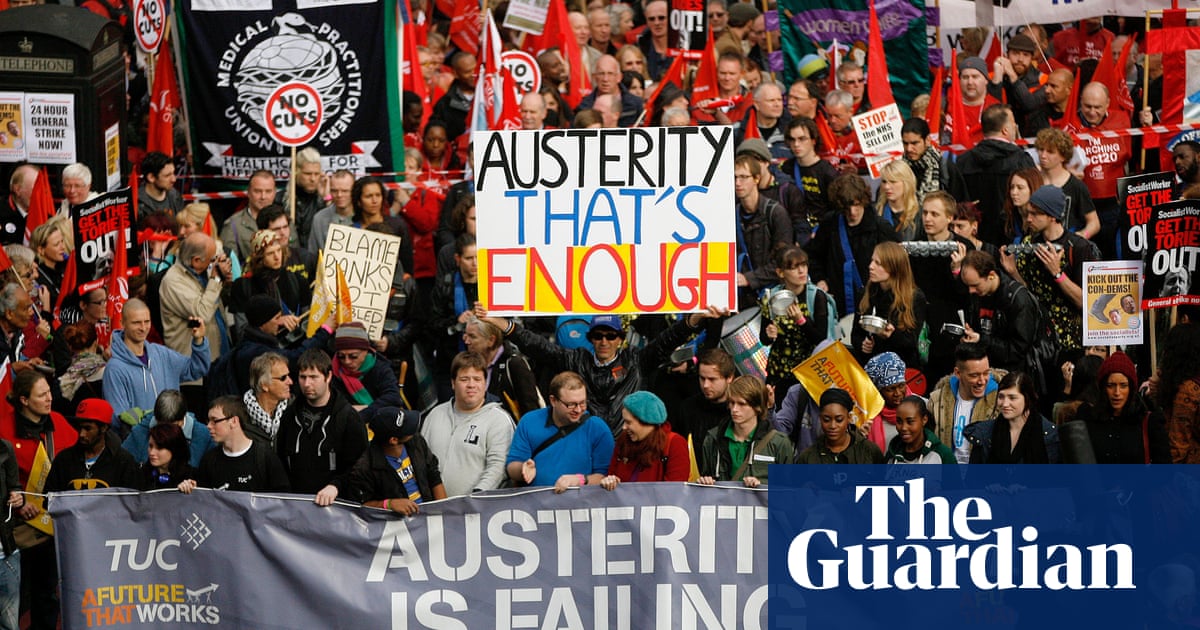
One in five people in the UK have nominally fallen down the social pecking order because they work in a lower-status job than their parents – with mothers, non-graduates and some black and minority ethnic groups more likely to find themselves “downwardly mobile”, according to a government advisory body.
Having become established in a lower-status occupation, most are likely to stay there, according to the study for the Social Mobility Commission, a finding it says is likely to confirm a growing sense among the public that society is becoming less fair, with opportunities for advancement less equal.
Education and affluence provided a buttress against downward mobility, the study found. Graduates were least likely to move into lower-status jobs, especially those who were the offspring of doctors, lawyers, teachers and scientists, and who could draw on parental professional networks and the “bank of Mum and Dad”.
The children of firefighters, police officers and nurses – occupations that have become largely the preserve of graduate recruits in recent years – were most likely to be in a lower occupational class than their parents – reflecting the increasing importance of a university degree in determining future employment status.
Women with caring responsibilities often found themselves downwardly mobile because they were either excluded from, or opted to bale out of, high-status jobs because of inflexible, highly competitive work environments that they were unable to combine with bringing up their children.
Black African, Pakistani, Asian and Bangladeshi migrants – often coming to the UK with degrees and professional qualifications – were more likely than their white British counterparts to be downwardly mobile after coming up against “opaque hiring and progression practices that seem to exclude them at every turn”, the study said.
“While there is a lot of attention on upwards social mobility, much less attention is paid to downward social mobility,” said Ben Page, the chief executive of Ipsos Mori, which carried out the research. “This new study shows that it is much more likely to affect BAME people, and children of some key workers than professionals and white people.
“If this continues, Britain won’t get any more equal. Already the proportion of people who think there is equality of opportunity in Britain has fallen from 53% to 35% in the last 10 years. The consequences of Covid-19 on top of existing trends could be stark.”
Downward mobility has been on the increase in the UK in recent decades, the study says. While 56% of sons born by 1975 went on to earn more than their fathers, this had dropped to just 33% by 1985, with the majority of sons in recent cohorts earning less than the previous generation.
For those interviewed by researchers who had no choice about dropping down the career ladder, through loss of a job or illness, or through taking time out to have children, the financial impact could be severe, trapping them in “a vicious circle of low pay and low self-esteem”, anxiety about debt, and emotional distress.
Researchers urged the government to reduce structural inequalities and provide more support for those in lower-status jobs. “At a time of considerable pressure on families and those with caring responsibilities … policymakers must redouble their efforts to support those who can ‘fall through the cracks.’”
Although politicians and commentators invoke the phenomenon of recent generations earning less than their parents as a sign of societal crisis, the interviews suggest many of the downwardly mobile seemed far less obsessed about the related loss of social and economic standing.
A female supermarket worker whose parent was an accountant told the study: “When you dig really deep, I think it is about happiness and stability, and feeling valued … because money is secondary to all that. As long as you can get by, you shouldn’t worry about it.”
The co-chairs of the commission, Sandra Wallace and Steven Cooper, said occupations classified as low-status had been highlighted as essential during the pandemic and called for higher rewards for health workers, refuse collectors, supermarket workers, care workers and nursery staff.
The study used three occupational groupings: professional (for example director, doctor, lawyer, teacher, journalist); intermediate (police officer, secretary, electrician, chef); and working (dental nurse, fitness instructor, bus driver, hairdresser).












